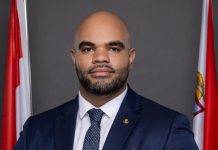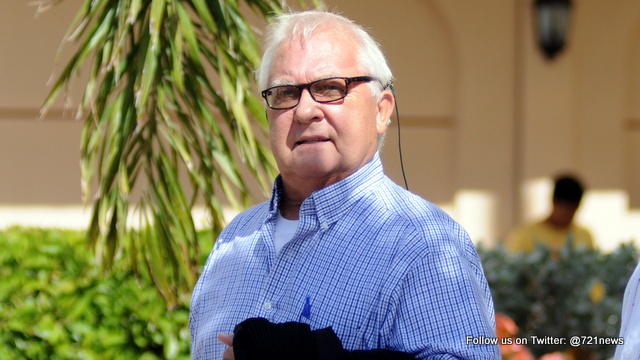If Common Court finds prosecution admissible
GREAT BAY – Class justice or a matter of choosing priorities? That is the question in the appeal of the prosecutor’s office in the Masbangu-trial that played out in the Common Court of Justice yesterday. In August of last year, the Court in First Instance declared the prosecution inadmissible in this case about vote-buying by the United People’s party in the run-up to the 2010 elections.
Initially there were five defendants: a representative of the UP who paid out the money for the votes, and four police officers who took the money. One of the police officers has in the meantime passed away. The court declared the prosecution last year inadmissible because it had failed to prosecute the leadership of the UP, in particular party leader Theo Heyliger.
In its August 2014 ruling, the court accused the prosecutor’s office of class justice and revealed en passant that UP-leader Heyliger had deposited $3 million of his own money in the election coffers of his party.
Roy H., an uncle of UP party leader Theo Heyliger, Ashwin Rodney Wilfred M., Cernick Jan Lionel C. and Robert Charles Henry J. all left the court without a conviction to their name, even though the message the court conveyed contained little sympathy. “Protecting the defendants is extremely unsatisfactory because there are concrete indications that they committed a punishable act.”
However, the court declared the prosecution inadmissible, “because a decision to prosecute may not be taken randomly or violate the rule of law that equal cases have to be treated equally. Acting against these rules of law is unjust,” the contested court ruling states.
Given the time it took to complete the investigation and bring the case to court – from September 2010 until February 2014 – “it must have been possible to do a criminal investigation into the involvement of (the leadership of) the UP party,” the court ruled. “This investigation has not been done and that is wrong. By only prosecuting the vote-sellers and the suspect who acted as the representative of the party, the public prosecutor’s office has “at least created the semblance that the decisions to prosecute are based on class justice.”
The prosecution appealed the ruling. Yesterday three of the four defendants were in court with their attorneys. The fourth one, Ashwin M. said he would continue without legal representation. though the judges quickly made clear that there was only one issue at stake: the admissibility of the prosecution. If the Common Court finds the prosecution admissible, it will send the case back to the Court in First Instance for retrial. If the conclusion is that the prosecution remains inadmissible, the case is over. The Common Court will pronounce its ruling on May 5.
Solicitor-general Taco Stein contested yesterday that the prosecution had violated the principle of equality by not prosecution UP-leader Heyliger. “The conclusion of the court is not justified,” he said. “The prosecutor’s office has broad discretionary authority over its decisions to prosecute. In similar cases, the Supreme Court has ruled that the court has to be careful with declaring the prosecution inadmissible.”
The solicitor-general said that prosecuting has everything to do with setting priorities. “Not all criminal activities are prosecuted. Furthermore, in this case we are not talking about similar situations.”
That the prosecutor’s office had dropped the investigation against Heyliger has to do with “the cumbersome establishment of the National Detective Agency in 2010” and with distressing staff shortages. “It is absolutely not so that the prosecutor’s office has deliberately protected the leader of the UP-party,” Stein said, adding that his office distances itself from the qualification of class justice.
The attorneys for the defendants obviously stood up for last year’s court ruling that declared the prosecution inadmissible. Attorney Cor Merx said that the prosecution must be declared inadmissible, be it on different grounds from the ones the Court in First Instance used last year. Attorneys Eldon Sulvaran and Jairo Bloem spoke briefly and seconded Merx’s arguments. “We maintain that the prosecution has applied double standards.” In picture Attorney Cor Merx.
Source Today Newspaper






























